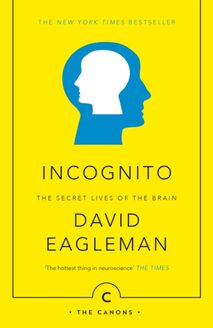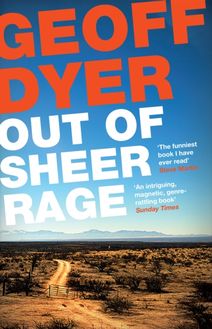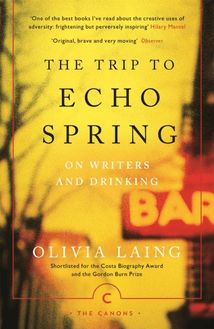-
 Univers
Univers
-
 Ebooks
Ebooks
-
 Livres audio
Livres audio
-
 Presse
Presse
-
 Podcasts
Podcasts
-
 BD
BD
-
 Documents
Documents
-
- Cours
- Révisions
- Ressources pédagogiques
- Sciences de l’éducation
- Manuels scolaires
- Langues
- Travaux de classe
- Annales de BEP
- Etudes supérieures
- Maternelle et primaire
- Fiches de lecture
- Orientation scolaire
- Méthodologie
- Corrigés de devoir
- Annales d’examens et concours
- Annales du bac
- Annales du brevet
- Rapports de stage
La lecture à portée de main
Vous pourrez modifier la taille du texte de cet ouvrage
Découvre YouScribe en t'inscrivant gratuitement
Je m'inscrisDécouvre YouScribe en t'inscrivant gratuitement
Je m'inscrisEn savoir plus
Vous pourrez modifier la taille du texte de cet ouvrage
En savoir plus

Description
Sujets
Informations
| Publié par | Canongate Books |
| Date de parution | 11 juillet 2013 |
| Nombre de lectures | 0 |
| EAN13 | 9780857868893 |
| Langue | English |
| Poids de l'ouvrage | 1 Mo |
Informations légales : prix de location à la page 0,0400€. Cette information est donnée uniquement à titre indicatif conformément à la législation en vigueur.
Extrait
Also by Olivia Laing
To the River
OLIVIA LAING
The Trip to Echo Spring
Why Writers Drink
CANONGATE
Edinburgh . London
Published in Great Britain in 2013 by Canongate Books Ltd, 14 High Street, Edinburgh EH1 1TE
canongate.co.uk
This digital edition first published in 2013 by Canongate Books
Copyright © Olivia Laing, 2013
The moral right of the author has been asserted
For permissions acknowledgements, please see here
Map copyright © Norah Perkins, 2013
British Library Cataloguing-in-Publication Data
A catalogue record for this book is available on
request from the British Library
ISBN 978 1 84767 794 5 ePub ISBN 978 0 85786 889 3
For my mother, Denise Laing,
with all my love
When alcoholics do drink, most eventually become intoxicated, and it is this recurrent intoxication that eventually brings their lives down in ruins. Friends are lost, health deteriorates, marriages are broken, children are abused, and jobs terminated. Yet despite these consequences the alcoholic continues to drink. Many undergo a ‘change in personality’. Previously upstanding individuals may find themselves lying, cheating, stealing, and engaging in all manner of deceit to protect or cover up their drinking. Shame and remorse the morning after may be intense; many alcoholics progressively isolate themselves to drink undisturbed. An alcoholic may hole up in a motel for days or a week, drinking continuously. Most alcoholics become more irritable; they have a heightened sensitivity to anything vaguely critical. Many alcoholics appear quite grandiose, yet on closer inspection one sees that their self-esteem
has slipped away from them.
Handbook of Medical Psychiatry, ed. David P. Moore and James W. Jefferson
Easy, easy, Mr. Bones. I is on your side
‘Dream Song 36’, John Berryman
CONTENTS Map 1 Echo Spring 2 The Coffin Trick 3 Fishing in the Dark 4 A House on Fire 5 The Bloody Papers 6 Going South 7 The Confessions of Mr. Bones 8 Half of Him Authors’ Dates The Twelve Steps of Alcoholics Anonymous Notes Bibliography Acknowledgments Permissions Acknowledgments List of Illustrations
1
ECHO SPRING
HERE’S A THING. IOWA CITY , 1973. Two men in a car, a Ford Falcon convertible that’s seen better days. It’s winter, the kind of cold that hurts bones and lungs, that reddens knuckles, makes noses run. If you could, by some devoted act of seeing, crane in through the window as they rattle by, you’d see the older man, the one in the passenger seat, has forgotten to put on his socks. He’s wearing penny loafers on bare feet, oblivious to the cold, like a prep school boy on a summer jaunt. In fact you could mistake him for a boy: slight, in Brooks Brothers tweeds and flannel trousers, his hair immaculately combed. Only his face betrays him, collapsed into hangdog folds.
The other man is bigger, burlier, thirty-five. Sideburns, bad teeth, a ragged sweater open at the elbow. It’s not quite nine a.m. They turn off the highway and pull into the parking lot of the state liquor store. The clerk’s out front, keys glinting in his hand. Seeing him, the man in the passenger seat yanks the door and lurches out, never mind the car’s still moving. ‘By the time I got inside the store,’ the other man will write, a long time later, ‘he was already at the checkout stand with half a gallon of Scotch.’
They drive away, passing the bottle back and forth. Within a few hours they’ll be back at the University of Iowa, swaying eloquently in front of their respective classes. Both are, as if it isn’t obvious, in deep trouble with alcohol. Both are also writers, one very well known, the other just cresting into success.
John Cheever, the older man, is the author of three novels, The Wapshot Chronicle , The Wapshot Scandal and Bullet Park , as well as some of the most miraculous and distinctive stories ever written. He’s sixty-one. Back in May, he was rushed to hospital with dilated cardiomyopathy, testament to the almighty havoc alcohol wreaks upon the heart. After three days in the Intensive Care Unit he developed delirium tremens, becoming so violently disturbed he had to be secured with a leather straitjacket. The job at Iowa – a semester teaching at the famous Writers’ Workshop – must have seemed like a passport to a better life, though it isn’t quite panning out that way. For various reasons he’s left his family behind, living like a bachelor in a single room at the Iowa House Hotel.
Raymond Carver, the younger man, has also just joined the faculty. His room is identical to Cheever’s, and immediately beneath it. The same painting hangs on both their walls. He’s come alone too, leaving his wife and teenaged children in California. All his life he’s wanted to be a writer, and all his life he’s felt circumstance set hard against him. The drinking’s been going on for a long while, but despite its depredations he’s managed to produce two volumes of poetry and to build up quite a clutch of stories, many of them published in little magazines.
At first glance, the two men seem polar opposites. Cheever looks and sounds every inch the moneyed Wasp, though closer acquaintance reveals this to be a complex kind of subterfuge. Carver, on the other hand, is a millworker’s son from Clatskanie, Oregon, who spent years supporting his writing with menial jobs as a janitor, a stockboy and a cleaner.
They met on the evening of 30 August 1973. Cheever knocked on the door of room 240, holding out a glass and announcing, according to Jon Jackson, a student who was present at the time: ‘Pardon me. I’m John Cheever. Could I borrow some Scotch?’ Carver, elated to meet one of his heroes, stutteringly held out a vast bottle of Smirnoff. Cheever accepted a slug, though he turned his nose up at the embellishments of ice or juice.
Sensing a dual intersection of interests, the two men immediately bonded. They spent much of their time together in the Mill bar, which only served beer, talking about literature and women. Twice a week they drove out in Carver’s Falcon to the liquor store for Scotch, which they drank in Cheever’s room. ‘He and I did nothing but drink,’ Carver reported later, in the Paris Review. ‘I mean, we met our classes in a manner of speaking, but the entire time we were there . . . I don’t think either of us ever took the covers off our typewriters.’
What’s odd about this wasteful year, not to mention all the disasters that followed on its heels, is that Cheever predicted it, in a manner of speaking. A decade earlier, he wrote a short story published in the New Yorker on 18 July 1964. ‘The Swimmer’ is about alcohol and what it can do to a man; how conclusively it can wipe out a life. It begins with a characteristically Cheeverish line: ‘It was one of those midsummer Sundays when everyone sits around saying, “I drank too much last night.’”
One of those people is Neddy Merrill, a slender, boyish man with an attractive air of vitality about him. Trotting out into the sunshine for a morning dip in his host’s pool, he’s struck by a delightful idea: that he will make his way home by way of a ‘string of swimming pools, that quasi-subterranean stream that curved across the county’. He names this secret road of mixed waters Lucinda , in honour of his wife. But there’s another liquid path he also follows: a chain of drinks taken on neighbours’ terraces and yards, and it’s this more perilous route that leads him downwards by degrees to the story’s uncanny and tragic end.
High on his marvellous plan, Neddy swims through the gardens of the Grahams and the Hammers, the Lears, the Howlands, the Crosscups and the Bunkers. As he passes on his self-appointed way he’s plied with gin by ‘natives’ – whose customs, he thinks to himself disingenuously, ‘would have to be handled with diplomacy if he was ever going to reach his destination’. The next house he reaches is deserted, and after he’s crossed the pool he slips into the gazebo and pours himself a drink: his fourth, he calculates vaguely, or perhaps his fifth. A great citadel of cumulus has been building all day, and now the storm breaks, a quick paradiddle of rain in the oaks followed by the pleasurable smell of cordite.
Neddy likes storms, but something about this downpour changes the tenor of his day. Sheltering in the gazebo, he notices a Japanese lantern that Mrs. Levy bought in Kyoto ‘the year before last, or was it the year before that?’ Anyone can lose their footing in time, can misstep a beat or two of chronology. But then there’s another queer flicker in temporality. The rain has stripped the maple, and the red and yellow leaves lie scattered on the grass. It’s midsummer, Neddy thinks robustly, and so the tree must simply be blighted, but this sign of autumn gives him an unpleasant shot of melancholy.
The sense of foreclosure deepens. At the Lindleys, the jumping ring is overgrown and the horses seem to have been sold. Worse, the Welchers’ pool has been drained. The Lucinda, that magical, abundant river, has run dry. Neddy is staggered, and begins seriously to doubt his command of time. ‘Was his memory failing or had he so disciplined it in the repression of unpleasant facts that he had damaged his sense of the truth?’ He pulls himself together though, rallying enough to cross Route 424, a portage more effortful and exposing than he’d expected.
Next he braves the public baths, with their whistles and murkish water. No pleasure there, but he’s soon up and out, clambering through the woods of the Halloran estate towards the dark, dazzled gold of their springfed pool. But here comes another offbeat, a sense that the world Neddy is travelling through is somehow strange to him, or he to it. Mrs. Halloran asks solicitously about his poor children, muttering something too about the loss of his house. Then, as he walks away, Neddy notices his shorts are hanging around his waist. Is it possible, he wonders, that he’s lost weight over the course of a single afternoon? Time is slopping around like gin in a glass. It’s s
-
 Univers
Univers
-
 Ebooks
Ebooks
-
 Livres audio
Livres audio
-
 Presse
Presse
-
 Podcasts
Podcasts
-
 BD
BD
-
 Documents
Documents
-
Jeunesse
-
Littérature
-
Ressources professionnelles
-
Santé et bien-être
-
Savoirs
-
Education
-
Loisirs et hobbies
-
Art, musique et cinéma
-
Actualité et débat de société
-
Jeunesse
-
Littérature
-
Ressources professionnelles
-
Santé et bien-être
-
Savoirs
-
Education
-
Loisirs et hobbies
-
Art, musique et cinéma
-
Actualité et débat de société
-
Actualités
-
Lifestyle
-
Presse jeunesse
-
Presse professionnelle
-
Pratique
-
Presse sportive
-
Presse internationale
-
Culture & Médias
-
Action et Aventures
-
Science-fiction et Fantasy
-
Société
-
Jeunesse
-
Littérature
-
Ressources professionnelles
-
Santé et bien-être
-
Savoirs
-
Education
-
Loisirs et hobbies
-
Art, musique et cinéma
-
Actualité et débat de société
- Cours
- Révisions
- Ressources pédagogiques
- Sciences de l’éducation
- Manuels scolaires
- Langues
- Travaux de classe
- Annales de BEP
- Etudes supérieures
- Maternelle et primaire
- Fiches de lecture
- Orientation scolaire
- Méthodologie
- Corrigés de devoir
- Annales d’examens et concours
- Annales du bac
- Annales du brevet
- Rapports de stage




















